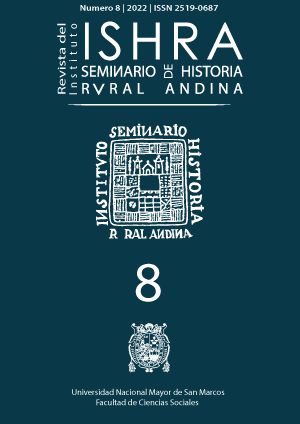In the Andes there are cities that disappear. The resettlement of the city of Morococha and the conflict between the new and old Morocochanos, through the anthropology of moralities.
DOI:
https://doi.org/10.15381/ishra.n8.23179Keywords:
Morococha, resettlement, moralities, tenants, true MorocochanosAbstract
The start-up of the Toromocho mining project involved the resettlement of the city of Morococha. This situation generated a social crisis that became a conflict in which different opinions could be glimpsed regarding the negotiation and the methods to be used for an adequate resettlement. This process fueled social differences, prejudices, discrimination and different types of accusations within a city on the verge of an absolutely radical change. But above all, it divided the social actors who, on the one hand, were in favor of resettlement without negotiation (tenants) and on the other those who were in favor of resettlement based on the implementation of a prior negotiation with the Chinalco mining company (true Morocochanos). With the aim of giving an argumentative thread, I explain this conflict in four parts: rupture, crisis, readjustment and reintegration.
Downloads
Downloads
Published
Issue
Section
License
Copyright (c) 2022 Yeiddy Chávez Huapaya

This work is licensed under a Creative Commons Attribution 4.0 International License.
AUTHORS RETAIN THEIR RIGHTS:
a. Authors retain their trade mark rights and patent, and also on any process or procedure described in the article.
b. Authors retain their right to share, copy, distribute, perform and publicly communicate their article (eg, to place their article in an institutional repository or publish it in a book), with an acknowledgment of its initial publication in the ISHRA, Revista del Instituto Seminario de Historia Rural Andina.
c. Authors retain theirs right to make a subsequent publication of their work, to use the article or any part thereof (eg a compilation of his papers, lecture notes, thesis, or a book), always indicating the source of publication (the originator of the work, journal, volume, number and date).






